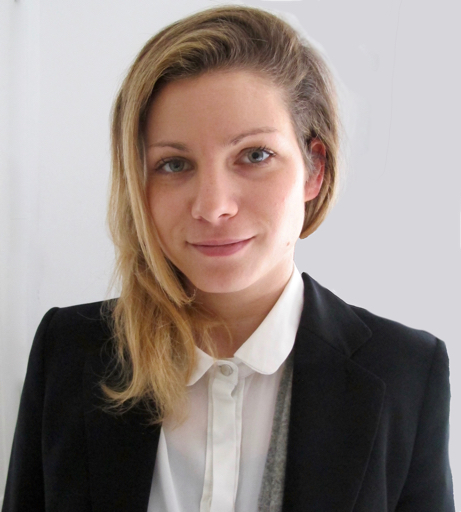Consortium
Scuola Normale Superiore

Scuola Normale Superiore is a public institute for higher education with unique features: student selection exclusively based on merit, lessons on a seminar basis, deeply intertwined teaching and research, an integrated college life, and the encouragement of international exchanges based on the best European model of higher education. In Pisa, lecturers, researchers and students inhabit the same spaces, with teaching and laboratory activities, cultural events and experimental initiatives all taking place in a single area.
The Scuola Normale Superiore (SNS) has recently established a new Political Science and Sociology Department in Florence. The main research areas are organized around the following topics: Democracy and social movements: In this area, sociological and political science competences converge around political sociology, which bridges the two disciplines through its main focus on the reciprocal influence of political and social transformations. Social movements, civil society, participative democracy, political violence, new media and conflicts are the main concepts addressed in the teaching and research activities. Comparative/global public policy and international governance: This area addresses, in an innovative way, themes such as the comparative analysis of public policies; the global dimension of public policies; the multilevel governance of public policies, that is the structural and processual characteristics that influence how public policies are decided and implemented in multilevel institutional processes (from the sub-national to the national, and from the supra-national to the international ones, with due attention to the European Union). Comparative politics and society: this area is oriented towards the comparative analysis of some main politico-institutional processes, focusing on the interactions between political parties, interest groups, civil society and the public opinion. The EURYKA project will be administered by a specific unit within the SNS administration, the Research Administration. This unit, which has long standing experience, deals exclusively with the management of externally funded grant contracts and is responsible for the proposal submission, contract negotiation, financial and administrative day to day management of the project, preparation of cost statements and contacts with external sponsors.

Lorenzo Bosi is the principal investigator of the Italian team. He received his Ph.D. in politics from Queen’s University, Belfast, in 2005 and is the past recipient of the ECRC (University of Kent), Jean Monnet and Marie Curie (EUI) post-doctorate fellowships. His research interests include social movements and political violence. Lorenzo Bosi has published in several journals, including Mobilization, Qualitative Sociology, Research in Social Movement, Conflict and Change, Historical Sociology, The Sixties, Social Science History, and Critique International. He is co-editing two manuscripts Dynamics of Radicalization (Ashgate) with Dr. Stefan Malthaner and Dr. Chares Demetriou; and Relational Dynamics and Processes of Radicalization (Oxford University Press) with Prof. Eitan Amili and Dr. Chares Demetriou. For up-to-date information, please visit Lorenzo's page .

Anna Lavizzari is a research fellow at the Scuola Normale Superiore, Institute of Humanities and Social Sciences, in Florence, where she is part of the COSMOS (Centre on Social Movement Studies) research team. She holds a Ph.D. in International Relations from the University of Kent (2017, with a thesis on contentious politics between the LGBTQ movement and the Catholic countermovement in Italy) and a Master in International Conflict and Security at the University of Kent (2012). Previously, Dr. Lavizzari conducted different research projects on youth, participation and gender issues across Europe. In parallel, she has been Teaching Assistant in International Conflict and Security and Gender and Conflicts at the Brussels School of International Studies. Her research interests include social movements, gender studies, youth political participation, international conflict and security, and qualitative methods.
Martín Portos is a Postdoctoral Fellow at the Centre on Social Movements (COSMOS), Scuola Normale Superiore (Florence). He completed a PhD in Political and Social Sciences at the European University Institute in February 2017, with a thesis focused on anti-austerity protests in Southern Europe. His research interests include political participation, social movements, democratic attitudes, institutions and nationalism. Dr Portos holds a BA (Hons) in Political Science from the University of Santiago de Compostela (Regional and National Award for Excellence in Academic Performance, 2011), a MSc Politics Research from the University of Oxford and a MRes from the EUI. He has participated in different international projects and has been awarded grants and fellowships from Fundación Caja Madrid, Linares Rivas–Oxford University, EUI-MECD, Banc Sabadell and Centro de Investigaciones Sociológicas, among others. His contributions have featured in international outlets. Together with D. della Porta et al., Portos has co-authored the monograph Social Movements and Referendums from below. Direct democracy in the neoliberal crisis (Policy Press/ University of Bristol, 2017).
Stefania Voli holds a Phd in Citizenship, Rights and Gender Equality in Modern and Contemporary History (University of L’Orientale Naples), with a dissertation on Radical Left Movements in the 70s Italy. In 2016 she earned a second Phd in Applied Sociology and Social Research Methodology at the University of Milan-Bicocca, working on Transgender Rights and Citizenship in current Italy. She is teaching Assistant in Global Cultures at the University of Bologna. From 2015 to 2017 she has taught Italian Contemporary History and Gender, Race and Representation in Italy with CIEE (Council of International Educational Exchange), of Ferrara, Italy. She is on the board of the Italian Association of Women Historians (SIS) and of its Summer School. Stefania Voli’s research interests include Gender Studies and Gender History, Contemporary Italian History, Feminist, Social and Political Movements, Oral History, Qualitative Research. Currently she is a researcher member in EURYKA (H2020) at the Institute of Humanities and Social Sciences at Scuola Normale Superiore (Florence, Italy).
https://unimib.academia.edu/StefaniaVoli

